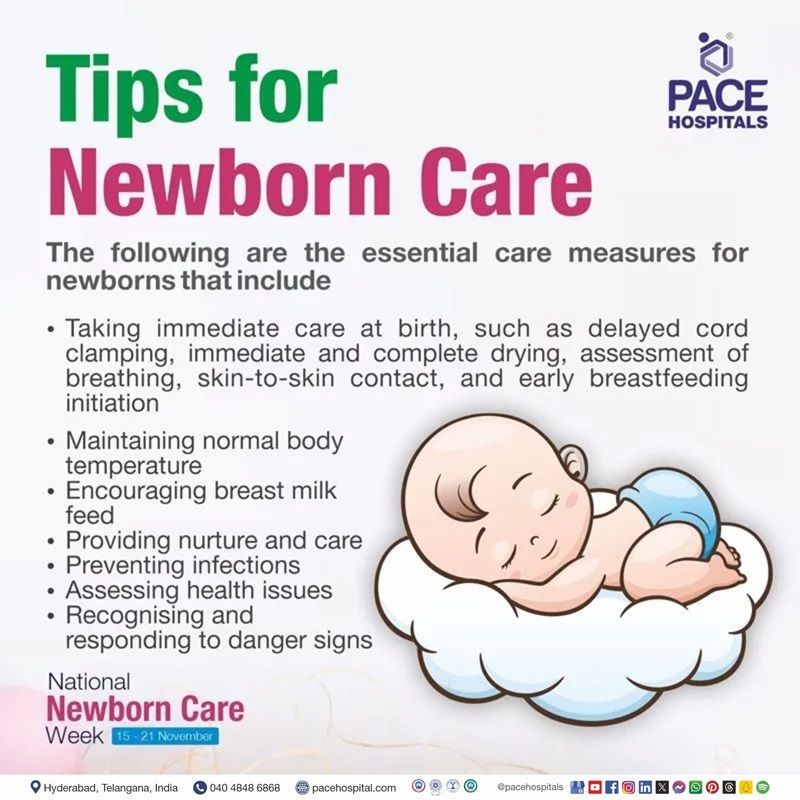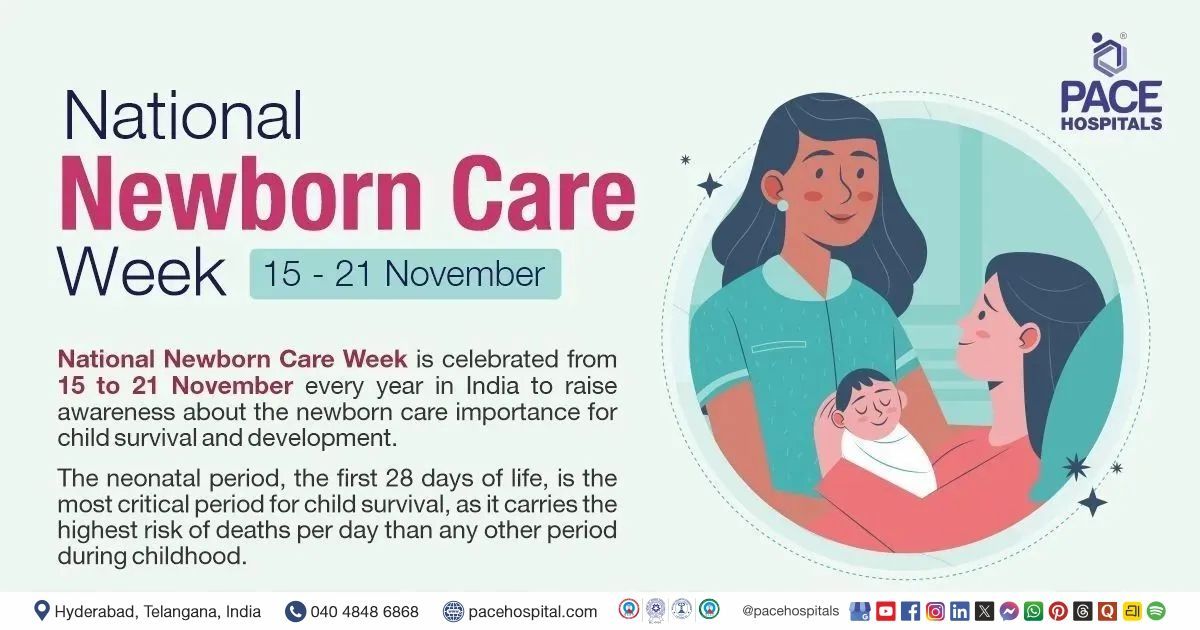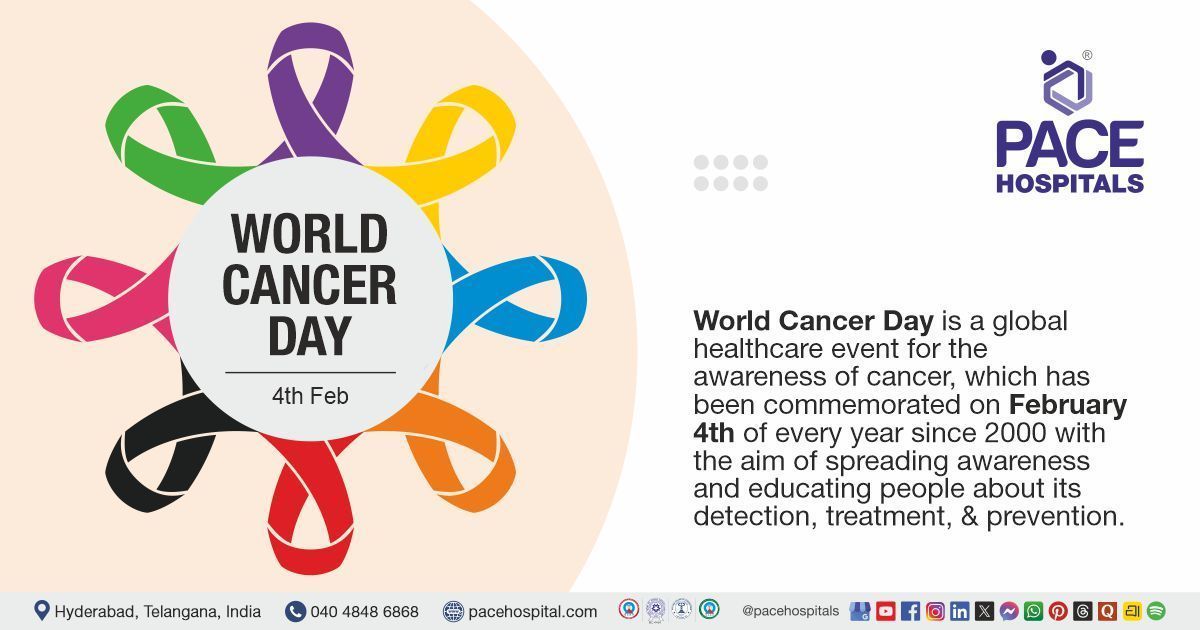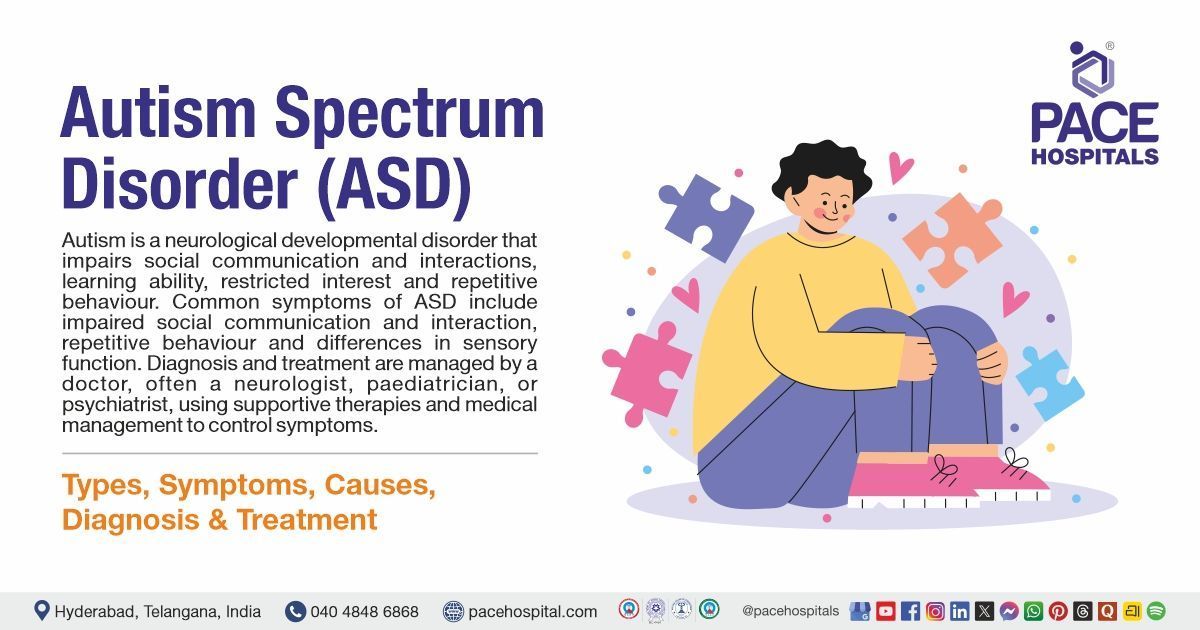National Newborn Care Week, 15 - 21 November, Importance & History
PACE Hospitals
National New Born Care Week is a national health care event, observed in India between 15th to 21th November annually, intended to raise awareness about the importance of newborn care for child survival and development.
During this week, the State and Central Government officials and development partner representatives work together on child health to raise awareness towards eradicating preventable deaths of infants in India.
Importance of National Newborn Care Week
The neonatal phase (the first 28 days of life) is critical for infant survival, since it has the highest risk of death per day during infancy. The first month of life is also a crucial time for long-term health and development. Healthy newborns develop into healthy individuals who can thrive in their communities and societies.
Every newborn, irrespective of their place, has the right to high-quality universal newborn health care. Babies have the right to breathe normally, be warm, be nourished, and be safe from infections and injuries. All newborns should have access to primary newborn care, which is vital for all babies in the first few days after birth. Essential newborn care includes immediate care at the time of birth as well as care throughout the neonatal period. It is required both in the hospital and at home.
Infants become vulnerable when their immunity has not been developed. The following health complications can strike in the first 28 days-
- Neonatal infections
- Respiratory distress
- Lung damage from mechanical ventilation
- A collapsed lung
- Rapid breathing
Every year, 26 lakh babies die within the first 28 days of life, typically most of them dying within the first week, and an additional 26 lakh stillbirths occur. The Neonatal Mortality Rate (NMR) has decreased from 44 per 1000 live births in 2000 to 18 per 1000 in 2024 and target of 14 per 1000 by 2025 . The aim of reducing mortality among children under five to ≤ 20 per 1000 live births by 2035, can only be met by making special efforts to reduce infant mortalities.
Significantly, 35% of children die in the first month of life because of a lack of proper physical development, 33% due to newborn infection, 20% due to intrapartum problems of respiratory arrest and hypoxia, and approximately 9% die due to congenital deformities, so Newborn Care Week is celebrated to raise awareness and motivate people to provide newborns with the necessary care while also reducing the rate of neonatal mortality.
History of National Newborn Care Week
In 2014, India was the first country to launch the India Newborn Action Plan (INAP), which is aligned with the Global Every Newborn Action Plan and aims to eliminate unnecessary infant deaths and stillbirths. On November 15, 2021, an e-event for National Newborn Week was hosted at MoHFW under the supervision of Shri. Rajesh Bhushan, Secretary HFW, MoHFW, GoI, in the presence of senior Ministry officials.
National Newborn Care Awareness Week 2025 Theme
This year, 2025, the National Newborn Care Awareness Week theme is "Safety, Quality and Nurturing care – Birth Right of Every Newborn". This initiative aims to highlight the critical importance of newborn care during the first days and weeks of life, a time when infants are most vulnerable. The campaign emphasizes the need for universal access to high-quality care to reduce neonatal mortality and improve long-term health outcomes.
The week underscores the importance of essential newborn care practices, such as proper thermal protection, early initiation of breastfeeding, and prevention of infections. It also stresses the need for health systems to provide safety and quality care during childbirth, as well as postnatal care, to prevent the leading causes of neonatal death, including infections, respiratory distress, and birth complications.
In India, where neonatal mortality remains a significant health challenge, National Newborn Care Week helps raise awareness about these issues, mobilize resources, and encourage both governmental and community actions aimed at safeguarding the health of newborns.
Year by Year themes of National Newborn Care Week
- National Newborn Care Week 2024 Theme: Safety, Quality, and Nurturing Care: Birth Right of Every Newborn
- National Newborn Care Week 2023 Theme: Safety, Quality, and Nurturing Care: Birth Right of Every Newborn
- National Newborn Care Week 2022 Theme: Every Newborn's Birth Right
- National Newborn Care Week 2021 Theme: Newborn Health is Every Right
- National Newborn Care Week 2020 Theme: Nurturing Care

Tips for newborn care
The following are the essential care measures for newborns that include:
- Taking immediate care at birth, such as delayed cord clamping, immediate and complete drying, assessment of breathing, skin-to-skin contact, and early breastfeeding initiation
- Maintaining normal body temperature
- Encouraging breast milk feed
- Providing nurture and care
- Preventing infections
- Assessing health issues
- Recognising and responding to danger signs
Share on
Request an appointment
Fill in the appointment form or call us instantly to book a confirmed appointment with our super specialist at 04048486868












